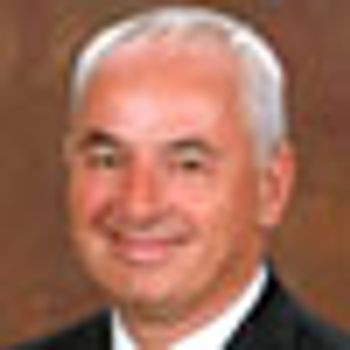
The FDA Neurological Devices Panel met to consider the Agency’s proposal to reclassify cranial electrotherapy stimulator (CES) devices to Class III with premarket approval.

The FDA Neurological Devices Panel met to consider the Agency’s proposal to reclassify cranial electrotherapy stimulator (CES) devices to Class III with premarket approval.

It’s a pleasure-and an honor-to welcome Dr Nada Logan Stotland to our Editorial Board.

A bill banning mental health providers from engaging in sexual orientation change efforts with patients passed the California Senate just weeks after prominent psychiatrist Robert Spitzer, MD, apologized to the gay community for his 2003 study.

There is rapidly escalating interest in drugs that target the glutamatergic neurotransmitter system, especially NMDA receptor modulators. The hope is that they will fill the large unmet need for rapid-acting antidepressant medications with efficacy in treatment-resistant depression.

Sleep-disordered breathing is common in patients with mood and anxiety disorders. This article explores the implication for practicing psychiatrists whose patients have sleep disorders.

Melatonin has a role in psychiatric illness and the treatment of circadian rhythm sleep disorders, insomnia, and comorbid depressive disorders.

Are patients with borderline personality disorder at a significantly increased risk for suicide when in the angry victim state? This question and more in this quiz.

Psychiatrists, physicians, and mental health professionals are often asked to treat patients facing issues of sexual orientation and gender identity. Here are quick Tips for trans-inclusion of LGBTs.

Weight gain is a known side effect of some medications for schizophrenia. Here: strategies to prevent and manage weight gain.

Propranolol therapy at a relatively low dose can cause anger and rage behaviors to subside in some patients. This case describes a man with Down syndrome who, after an accident, sustained minor brain trauma. Subsequently, he regressed to a rage state he had experienced when he was younger.

Importantly for lay and clinician readers alike, the book Monkey Mind: A Memoir of Anxiety reads as humor-laced triumph with many lost battles along the way rather than enduring unrelenting tragedy.

The California Supreme Court’s decision in the Tarasoff case over 30 years ago has become a standard part of mental health practice. This case influenced the legal requirements governing therapists’ duty to protect third parties in nearly every state in the US.

Grief is the psychological, behavioral, social and physical reaction to a loss that is closely tied to a person’s commitment to heal.

“If physicians cannot control what happens to them, then it’s going to be difficult for laypersons to control what happens to them.”

Cases that come to our attention as malpractice claims, ethics claims, or Board of Registration complaints raise the question: why did the treating clinician not terminate the treatment before things got so out of hand?


Psychiatry is a profession that deeply needs honest workers who are willing to seek a knowing ignorance, to be dissatisfied, and to refuse to conform-doing so in the interest of the truth and of the profession, seeing both as inseparable.

Age is a major risk factor for the development of Alzheimer disease and other dementias. New technologies in brain imaging represent major advances in our ability to diagnose age-related cognitive and behavioral disorders.

In a landmark decision, the Supreme Court has upheld the Patient Protection and Affordable Care Act enacted by Congress in 2010. What will this mean for psychiatrists?

In schizophrenia therapy, perphenazine can play in combating symptoms and in preventing relapse, though it can be associated with metabolic side effects.

I’m sprawled in the back, . . . riding out swells and storm tides . . . that toss this ship like a marriage.

Detailed, thoughtful descriptions throughout a Practical Guide to Correctional Mental Health and the Law provide context and make this reference a realistic and practical resource.

Evidence suggests that cannabis is associated with an increased risk of psychosis when it is used frequently. Marijuana doesn't count, does it?

How can clinicians reliably identify comorbid drug and alcohol use disorders in patients with anxiety disorders?

Lower respiratory tract infections are among the most frequent causes for office visits and hospitalizations of otherwise healthy young US children. Here, an overview of current guidance on diagnosis and management.

Retirement requires psychological preparation. The planning and anticipation in itself can sometimes bring even more happiness.

Here: nutritional supplements and over-the counter medications in schizophrenia management.

Eating disorders like anorexia nervosa are resistant to treatment. This case briefly outlines a treatment approach using a community-based, patient-centered model of care.

In this video, international expert on schizophrenia, Peter F. Buckley, MD, gives an overview of what's new in schizophrenia and discusses the state-of-the-art of diagnosis and management of this complex and challenging disorder.

Historical records reveal Don Juan syndrome was a recognized diagnosis that referred to forms of hypersexuality and sex addiction.